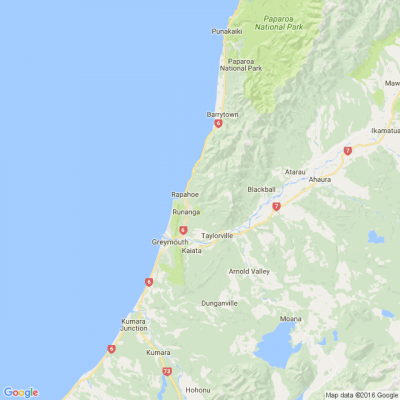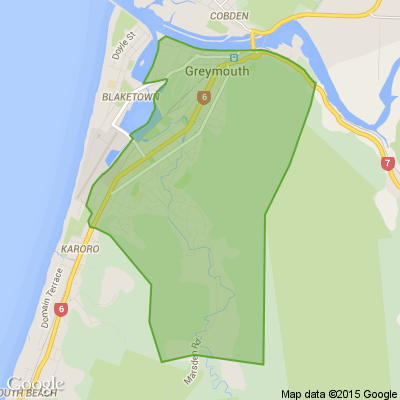West Coast communities will need to ‘help themselves’ if disaster strikes
By local democracy reporter Brendon McMahon:
When disaster hits the West Coast, people should not expect that help is on the way.
That's the plain warning from Westland Mayor Helen Lash.
She notes that "crystal ball gazing" needs to move to personal action.
"There will be no knight in shining armour. It's not going to happen. People need to understand that. The people we're going to rely on is ourselves. Anything other than that is a bonus," Mrs Lash said Monday.
The prospect of a massive Alpine Fault rupture (AF8) is now overdue and lines of communication along the 650km long region including roads, bridges, and power will be completely severed for weeks, if not many months.
A recent presentation to Hari Hari farmers by a river engineer noted the AF8 region-wide reality would be mass collapses of river valleys and hillsides with a total transformation of the landscape.
And those living south of Hokitika and north of Westport are particularly vulnerable due to single road access and some big rivers.
West Coast Civil Defence and Emergency Management group manager Claire Brown said a big focus for West Coast CDEM is "about community development".
Ensuring people in every district had an awareness, knew what they needed to do, and had the plan and contingencies in place were the key pillars, "at the end of it, helping communities to help themselves".
"That takes a lot of time and effort, she said.
"It also begins at home, locally held preparedness in the community you live in, how organised you are, how quickly are you able to coordinate a response."
That included an individual and local plan around finding access external communications.
Brown said fairly major events had already proven the complexities for the region.
The reverberation of Cyclone Gabrielle only reinforced that vulnerability.
"We know that it doesn't take a lot for the roading or infrastructure to be compromised."
Hokitika mayor Helen Lash said her biggest concern is that local residents have yet to overcome a complacency and to take some personal responsibility.
In the event, every little contingency already in place in the various neighbourhoods would be vital for the authorities to understand the bigger picture.
Breaking through that complacency was "flipping hard," particularly when some people held to an expectation that somehow a whole lot of external aid would arrive in an event like AF8.
Lash said she was passionate about an "from the ground up" approach that actually started at home.
"At the end of the day resilience is going to be the number one factor in the ability of communities to cope. Some communities have got on board."
A very impressive example was Harhari getting organised more recently with "a great team there".
They already had the fundamentals for an emergency operations centre in their settlement, and were working on a plan for alternative accommodation in an event for example.
Tools like organising a generator or planning an independent water supply should be happening now, Lash said.
She gave the example of own neighbourhood at Tutaki just south of Hokitika, which was highly likely to be cut off in the loss of the bridge despite its proximity to the main town.
Lash said Franz Josef was another good example of self organisation given what it had experienced in the past decade.
But people in every area urgently needed "to understand" they would be relying on their own resources for some time in a big disaster.
"It's going to rely on everyone pulling their weight."
Time to Tickle Your Thinker 🧠
If a zookeeper had 100 pairs of animals in her zoo, and two pairs of babies are born for each one of the original animals, then (sadly) 23 animals don’t survive, how many animals do you have left in total?
Do you think you know the answer? Simply 'Like' this post and we'll post the answer in the comments below at 2pm on the day!
Want to stop seeing these in your newsfeed? No worries! Simply head here and click once on the Following button.

Poll: As a customer, what do you think about automation?
The Press investigates the growing reliance on your unpaid labour.
Automation (or the “unpaid shift”) is often described as efficient ... but it tends to benefit employers more than consumers.
We want to know: What do you think about automation?
Are you for, or against?

-
9.5% For. Self-service is less frustrating and convenient.
-
43.4% I want to be able to choose.
-
47.1% Against. I want to deal with people.
Have you got New Zealand's best shed? Show us and win!
Once again, Resene and NZ Gardener are on the hunt for New Zealand’s best shed! Send in the photos and the stories behind your man caves, she sheds, clever upcycled spaces, potty potting sheds and colourful chicken coops. The Resene Shed of the Year 2026 winner receives $1000 Resene ColorShop voucher, a $908 large Vegepod Starter Pack and a one-year subscription to NZ Gardener. To enter, tell us in writing (no more than 500 words) why your garden shed is New Zealand’s best, and send up to five high-quality photos by email to mailbox@nzgardener.co.nz. Entries close February 23, 2026.







 Loading…
Loading…